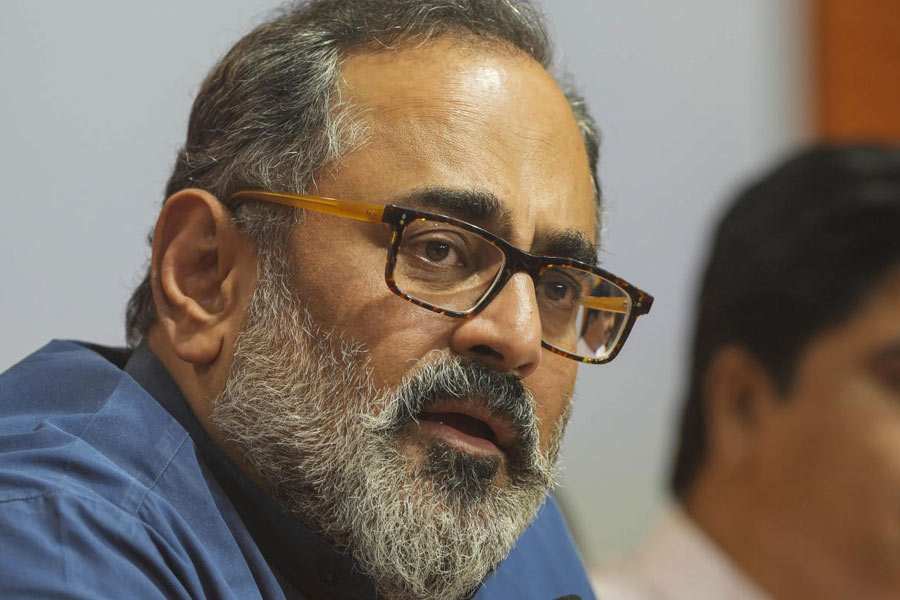The government has been developing regulatory frameworks that cast safety and trust as obligation on digital platforms, Union Minister Rajeev Chandrasekhar said on Tuesday, adding that this approach will continue to be finetuned going forward.
Today's world is dealing increasingly with complexity, commercial power, toxicity, and harms that have crept into the internet because innovation was allowed to go "so far ahead" without creating proper guardrails, the Minister of State for IT and Electronics said at the India Internet Governance Forum -- IIGF'23.
"So safety and trust as an obligation cast on platforms, is a framework that our government has been developing since 2021 and we will continue to fine-tune this... there is nothing that is going to be collegial, best-effort, self-regulatory framework that we have seen for so long." "Instead, we are transitioning into an era where governments have an obligation to ensure internet is safe and trusted for all those 1.2 billion Indians... and the same thought process is creeping to other democracies as well," he said.
Chandrasekhar also touched upon the issue of deepfakes.
"As the PM recently pointed out and put the spotlight on an issue like deepfakes, which is misinformation powered by AI, these are all challenges we will have to immediately square up to, and not let it get so far ahead that the regulation is playing catch-up," he said.
The government is driving a consultative approach to policy-making on technology, the minister said, adding that building blocks of key frameworks such as Digital Personal Data Protection legislation, IT rules and the proposed Digital India Act -- all of which are being put in place to govern the internet, spur innovation and protect consumers -- are being built on multi-stakeholder participation.
India is on fast-track of growth when it comes to internet, he said, noting that 850 million online Indians today represent the largest connected block of people on global internet. That number is set to rise to 1.2-1.3 billion Indians using global internet, he said.
"We can safely say that we have some views about the internet... of what future of internet should be... multi-stakeholderism will be the cornerstone to how future on internet will be shaped, policy wise and regulation wise," he said.
Multi-stakeholderism, he explained, is firmly embedded in the government's approach to policy-making and indeed the world's approach to designing future of internet in the "techade".
India today represents the most exciting "opportunity-rich" environment for technology in general and tech and innovation on the internet, in particular.
"It is clear that the future of technology is no longer what we used to think about 4-5 years ago, which is a group of companies or collection of countries that... in a sense... had a monopoly towards the future of tech..." "Rather, in today and tomorrow's world, the future of tech will be led by a number of countries, like-minded democracies, communities and societies, with shared values," he said.
The government over the past years has demonstrated a commitment to consultative policy making in technology which is "unprecedented".
"Be it DPDP Bill, IT rules or proposed Digital India Act... every one of these fundamental building block that will govern the internet, regulate internet, protect consumers and enable innovation is being constructed with multi-stakeholder participation and inputs, which is signature to this government and big departure from what used to be in past a unilateral policy-making, that left people... to scramble and deal with confusion and chaos... in wake of such policy," he said.
Accountability of platforms is becoming new normal, he observed.
"We are departing from the construct about shared responsibilities and diffused concepts of responsible and ethical use, and moving onto a model where there is safety and trust for consumers of tech and the platforms that deliver those service and products online on the global internet are being held accountable legally for safety and trust," Chandrasekhar said.
Except for the headline, this story has not been edited by The Telegraph Online staff and has been published from a syndicated feed.











